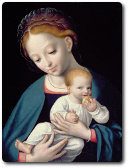Gerard Manley Hopkins, selected poems Contents
- As Kingfishers Catch Fire
- Binsey Poplars
- The Blessed Virgin Mary Compared to the Air We Breathe
- Carrion Comfort
- Duns Scotus' Oxford
- God's Grandeur
- Harry Ploughman
- Henry Purcell
- Hurrahing in Harvest
- Inversnaid
- I Wake and Feel the Fell of Dark
- Synopsis of I Wake and Feel the Fell of Dark
- Commentary on I Wake and Feel the Fell of Dark
- Language and tone in I Wake and Feel the Fell of Dark
- Structure and versification in I Wake and Feel the Fell of Dark
- Imagery and symbolism in I Wake and Feel the Fell of Dark
- Themes in I Wake and Feel the Fell of Dark
- The Leaden Echo and the Golden Echo
- Synopsis of The Leaden Echo and the Golden Echo
- Commentary on The Leaden Echo and the Golden Echo
- Language and tone in The Leaden Echo and the Golden Echo
- Structure and versification in The Leaden Echo and the Golden Echo
- Imagery and symbolism in The Leaden Echo and the Golden Echo
- Themes in The Leaden Echo and the Golden Echo
- The May Magnificat
- My Own Heart, Let Me Have More Pity On
- Synopsis of My Own Heart, Let Me Have More Pity On
- Commentary on My Own Heart, Let Me Have More Pity On
- Language and tone in My Own Heart, Let Me Have More Pity On
- Structure and versification in My Own Heart, Let Me Have More Pity On
- Imagery and symbolism in My Own Heart, Let Me Have More Pity On
- Themes in My Own Heart, Let Me Have More Pity On
- No Worst, There is None
- Patience, Hard Thing!
- Pied Beauty
- The Sea and the Skylark
- Spelt from Sibyl's Leaves
- Spring
- Spring and Fall
- St. Alphonsus Rodriguez
- The Starlight Night
- That Nature is a Heraclitean Fire and of the Comfort of the Resurrection
- Synopsis of That Nature is a Heraclitean Fire
- Commentary on That Nature is a Heraclitean Fire
- Language and tone in That Nature is a Heraclitean Fire
- Structure and versification in That Nature is a Heraclitean Fire
- Imagery and symbolism in That Nature is a Heraclitean Fire
- Themes in That Nature is a Heraclitean Fire
- Thou Art Indeed Just, Lord
- Tom's Garland
- To Seem the Stranger
- To What Serves Mortal Beauty
- The Windhover
- The Wreck of the Deutschland
- Beauty and its purpose
- The beauty, variety and uniqueness of nature
- Christ's beauty
- Conservation and renewal of nature
- God's sovereignty
- The grace of ordinary life
- Mary as a channel of grace
- Nature as God's book
- Night, the dark night of the soul
- Serving God
- Suffering and faith
- The temptation to despair
- The ugliness of modern life
- Understanding evil in a world God has made
Mary as a channel of grace
Honouring Mary
 This theme is the most obviously Catholic subject of them all. Although other Christian churches recognise Mary, the Catholic Church holds her in especial honour and veneration. Certain religious orders give her greater prominence than others in their spirituality, including the Jesuits to whom Hopkins belonged.
This theme is the most obviously Catholic subject of them all. Although other Christian churches recognise Mary, the Catholic Church holds her in especial honour and veneration. Certain religious orders give her greater prominence than others in their spirituality, including the Jesuits to whom Hopkins belonged.
The two most obvious poems which refer to Mary are those Hopkins wrote at Stonygate for its annual day in May devoted to Mary. These are The May Magnificat and The Blessed Virgin. The first is a fairly slight poem, paralleling Spring as the time of birth and motherhood with Mary. There is celebration rather than veneration, with little attempt to make any theological statements.
Mary's grace
In The Blessed Virgin, the parallels or analogies with the air are formed into much more obvious theological statements:
- as the air nurtures humans, so does Mary, not just the baby she is carrying:
‘But mothers each new grace / That does now reach our race'‘Grace' is a difficult concept, especially when it is seen as a countable ‘each grace' rather than just a more abstract entity ‘grace'
- in Mary's ability to bring grace to humans, she is greater than all the pagan goddesses
- she is also able to pray for people:
‘God has let dispense/ Her prayers his providence'. More on the prayers of Mary?More on the prayers of Mary: It should be noted that this idea is one which divides Catholic and Protestant believers; the latter believe only Christ can intercede for them.
In other poems, Mary is only mentioned in passing, for example in Duns Scotus's Oxford. Here the doctrine of her Immaculate Conception is mentioned, something that had only really become official teaching in Hopkins' lifetime. In The Starlight Night, there is the briefest mention of Mary with the other saints as part of the ‘fence' of the church, enclosing the believers.